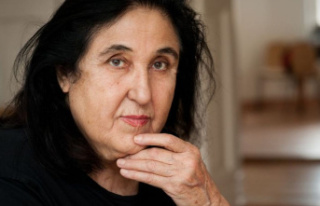Although gas has become drastically more expensive, it is still not more expensive than heating with electricity. But only 35 percent of those surveyed assume that the operation of electrical devices is more expensive than that of conventional gas or oil heating. And around a quarter assumes that the costs will be the same. In fact, the price for a kilowatt hour (kWh) of electricity is significantly higher than for a kWh of gas.
In August 2022, a kilowatt hour of electricity costs around 42 cents on average nationwide, the average gas price is around 18 cents per kilowatt hour. "Assuming a complete conversion of the heating energy into space heating, i.e. an efficiency of 100 percent, the gas price would have to more than double in order for the same costs to be incurred as with electric heating," says Thorsten Storck, energy expert at Verivox.
"It's an incredibly expensive idea, because even with the currently astronomically high gas prices, it's still 50 percent more expensive to heat with electricity than with gas," said Klaus Müller, head of the Federal Network Agency, WELT AM SONNTAG. But it is a fact that the devices are bought.
Almost a third of German households want to buy an electric heater. With 40 million households, that's around twelve million additional devices. If the experts are to be believed, the mass use of electric heating will collapse the power grids. "We view the current development with some concern, since our power supply is not designed for such a simultaneous additional load," says Martin Kleimaier, Head of the Department of Generation and Storage of Electrical Energy at the VDE. And since the heaters are simply plugged into a household socket, they could not be switched off by the grid operator in the event of imminent grid overload. This is different with electric heat pumps or so-called night storage heaters.
The VDE paints the following scenario: If the power supply is switched off due to network overload due to too many fan heaters that were switched on at the same time, most electricity customers would have to switch off their fan heaters immediately. Because otherwise the network would switch off again immediately the next time you tried to start it up again.
The VDE warns that the current power plant capacity is not sufficient for such additional loads. There are around 20 million gas heaters in Germany. If every second household operated an electric heater with a typical power consumption of 2000 watts on a cold winter day, this would correspond to an additional electrical consumption of around 20 gigawatts. This corresponds to an increase of the current annual peak load in Germany by a quarter. Neither the power grids nor the existing power plants could do that, especially since gas-fired power plants would also not be available in a gas shortage.
Federal Network Agency boss Müller therefore sees “good reasons to now commission a second stress test for the power supply. This second stress test should be taken seriously. We will see whether it means that nuclear power plants have to run longer in Germany."
Frank Gröschl, head of technology and innovation management at the German Technical and Scientific Association for Gas and Water (DVGW), advises gas consumers to remain calm: "The gas heating can definitely continue to be operated." Even if Russia stops gas supplies completely, they will remain Radiators warm at home, because households are among the protected customers who are supplied with gas even if the gas supply should be severely restricted. According to the Federal Network Agency, not only households, but also social facilities, hospitals, district heating power plants and fire brigade, police and armed forces facilities are exempt from the throttling of the gas supply.
However, according to Gröschl, it makes sense to take efficiency measures on the gas heating systems for the winter now: lowering the room temperature by one degree saves six percent of energy. The adaptation of the heating control to the actual user behavior, the online control of radiator thermostats via an app or the hydraulic balancing of the heating system are other quick-acting measures to increase efficiency and reduce consumption. One should have the gas heaters serviced in good time before winter. The fact that gas consumption has fallen by around 14 percent compared to the previous year shows that it is worth it. "But there is still something to do," says the expert.
The motivation to save even more gas is definitely there: According to Verivox, gas costs for private customers have almost tripled. Compared to last year, average prices up to August have increased by around 184 percent. And it will get even more expensive, because many regional gas suppliers have announced price increases of 50 percent on average for August, September and October. “However, the price will rise significantly higher because wholesale gas prices are currently well above this level. Consumers must therefore be prepared for further price increases in the coming months," says Verivox expert Storck. The new gas levy also contributes to this. This will probably ensure that gas costs even quadruple within a year.
"Everything on shares" is the daily stock exchange shot from the WELT business editorial team. Every morning from 7 a.m. with the financial journalists from WELT. For stock market experts and beginners. Subscribe to the podcast on Spotify, Apple Podcast, Amazon Music and Deezer. Or directly via RSS feed.












